#richard nunns
Explore tagged Tumblr posts
Text



Chess (1988) - Richard Nelson
#Chess#Chess the musical#Florence Vassy#Anatoly Sergievsky#Svetlana Sergievskaya#Richard Nelson#quotes#words#This makes me a little bit crazy sorry.#Nelson says so much in implication.#I really wish he'd been less under Nunn's influence because I really think he could have done so much more.
94 notes
·
View notes
Note
What was that crazy music video type thing you included on that post about ALW being an ass to Patti Lupone? I have never seen that before and I am both intrigued and horrified. I only recently got into Phantom, and all this craziness is just delighting me. 😂
For context, this is the video referred to in this ask:
youtube
This was a promo video done in 1985 (I think), to promote Phantom. Those are the original lyrics by Richard Stilgoe, which he wrote before Charles Hart was involved. You'll recognize a few here and there, but a lot of them are... weird, to say the least (weird enough for Cameron "Satan" Mackintosh to tell ALW to either find someone to help out Stilgoe, either outright fire him, or else he wouldn't produce Phantom anymore. And given it was proving to be a VERY costly show to make, even ALW knew losing CamMack was a no-no).
The staging is also different, because Trevor Nunn was the director at this point. And that's another funny (HA) story: ALW and Cameron Mackintosh had initially got Hal Prince to direct. And for those of you who don't know, Hal Prince is basically to musicals what Steven Spielberg is to cinema. He directed some of the most successful musicals of the latter half of the 20th century: Evita, Sweeney Todd, Fiddler on the Roof, West Side Story, Cabaret, Company... and that's the list of musicals I know even the uninitiated will recognize. So one day, on a whim, ALW decided to fire Hal Prince, which went about as well as you might expect: ALW chickened out of the dinner where he and CamMack were supposed to break the news to him, which led to CamMack having to sheepishly break the news to Hal Prince, who stormed out furious (AS HE SHOULD). Again, imagine yourself firing Steven Spielberg from making Saving Private Ryan and replacing him with, I dunno, the Russo brothers because The Avengers made a shit ton of money.
Why? My guess is that Hal Prince had the balls to tell ALW to stick it whenever he'd bring bad ideas on the table, so ALW basically decided to replace Hal Prince with the director for one of his previous musicals, Trevor Nunn (who is a decent director, mind you, making the comparison to the Russo brothers a little harsh).
Which musical was it, mind you? CATS.
IT ALWAYS COMES BACK TO CATS.
And Steve Harley? He was a rock singer who got picked up along the way because they urgently needed someone to play the Phantom in the music video, and full offense but he's a worse singer than Gerald Butler in my opinion, and at least the latter could actually act. ALW realized that they needed someone else, and he basically smuggled the score to a comedic actor called Michael Crawford, who had some prior experience singing in musicals (he's in the film adaptations of A Funny Thing Happened on the Way to the Forum and Hello Dolly, if you're interested), but he wasn't exactly the guy you'd think of for the Phantom? Thankfully, he proved everyone who might have doubted him wrong, and amazingly at that, but he was a gamble at the time nonetheless.
And as you may guess, the music video was kind of poorly received, and Trevor Nunn worked on a little musical called Les Misérables, which got piss poor reviews and ALW was at the head of them (CLASS ACT, THAT FELLOW). But the uneducated, unwashed plebs loved it so I guess that's the reason why it's still playing today, and not because it's one of the most beautiful scores ever written for musical theatre, summing up a 1,000 book perfectly and conveying emotions that could make angels cry, nah. /s Anyway, that led to ALW firing Trevor Nunn, and begging Hal Prince to come back, and he agreed - which really goes to show how gracious he is because I would have laughed in ALW's face.
And what happened to Steve Harley, you may ask? He found out with a call from CamMack that he was fired, with no explanation whatsoever, and it was only later that he found out Michael Crawford had replaced him. I mean, was it for the best? Yeah. Do I still feel kind of bad for Steve Harley? Yeah.
So yeah, thank your lucky stars Hal Prince, Charles Hart and Michael Crawford agreed to be in this. I'd also add Maria Bjornson, but I really wonder now how she got involved in the first place because if that came from ALW, that might be the single best decision he ever made in his entire life. But I don't have any trust in him whatsoever to pull that off lmao
#lord-valery-mimes#phantom of the opera#Andrew Lloyd Webber#Hal Prince#Cameron Mackintosh#Charles Hart#Richard Stilgoe#Trevor Nunn#Michael Crawford#Steve Harley#and now you know
106 notes
·
View notes
Text
Twelfth Night: Or What You Will (1996)
The 1996 BBC Films production of Twelfth Night: Or What You Will is a mostly faithful staging of the classic Shakespeare comedy, directed by The Royal Shakespeare Company’s Trevor Nunn. It’s not the kind of MTV-era update to Shakespeare’s text that you’ll find in fellow 90s titles like 10 Things I Hate About You or My Own Private Idaho, which tried to Make the Bard Cool Again for a generation who…

View On WordPress
#ben kingsley#brandon ledet#costume drama#drag#drama#helena bonham carter#imogen stubbs#nigel hawthorne#period drama#reviews#richard e grant#royal shakespeare company#shakespeare#theatre#trevor nunn#twelfth night#william shakespeare
1 note
·
View note
Text
So You Want To Know About Chess The Musical
So you want to know about Chess. The first piece of advice I have to give you is:
Step 0: Are you sure?
Because trust me, it's a whole lot weirder than you think, even if you know that the story is, in fact, only very little about chess (the board game). But if you are sure, because you have a friend who, like me, can't stop talking about it, then, you're ready to begin with step one.
Step 1: Listen to the concept album
Yes, there are plenty of recordings of the full show that are easily accessible on YouTube. Do not be fooled. With very minor exceptions, they will not elucidate anything at all. Trust me, even if your favorite actor is in one of them, start here. You will have time to get back to them later, trust me. It helps to read the synopsis of the album while listening; this has been kindly transcribed here by @alovebizarre.
Already hooked? Yeah, probably. Now you understand why all of us got stuck down here in our circle of complaining about this show. We, too, all thought it was going to be good based on the concept album.
Step 1.5: Watch the 1989 concert
This is mostly the songs of the concept album and retains the two male leads, but has Judy Kuhn playing Florence, the female lead. It's a strong concert and only cuts one song, and adds another ("Someone Else's Story", the show's only breakout hit not on the album). There is plot narration in Swedish, but one of the versions on YouTube has been subtitled in English
Step 2: Acquaint yourself with The Big Four
Now you know the music but the plot may still not be totally clear. The next step is to get to know the major variations. These are, generally:
The 1986 London version (and derivatives)
The 1988 Broadway version (and derivatives)
The 1990 Sydney version (there aren't really derivatives for this one but the material shows up Everywhere)
The 2002 Swedish version aka Chess på svenska (and derivatives)
Now, you can watch the original productions of all of these, but the issue is that the first two are both... not great. So here are some alternatives.
Step 2a: London Alternatives
The London version is mostly an expansion of the plot of the concept album, with changes - most of the structural changes were initiated by director Michael Bennett, who left the production before rehearsals due to his illness, while most of the more distinct changes of themes are from later director Trevor Nunn.
There are videos of the original production, but they're generally poorly filmed and suffer from major generation loss. There was no cast album, but the score has been recorded twice: in 2002 with the cast of a Danish touring production (released as "Chess: Complete Cast Album," but recalled soon after and not on streaming) and in 2008 at the Royal Albert Hall (this is on streaming as "Chess in Concert" - one of two albums of that name).
Any one will give you an idea of the script, but the original London production is generally the most musically cohesive. The Royal Albert Hall version has some minor script changes, most of which make no real difference, but makes some bizarre choices in terms of transition music and is generally a poorly produced album. The Danish album is likewise not very strong.
The Royal Albert Hall concert was professionally filmed but the audio is poorly mixed and the show's cast varies from a few great performances to some that are... not so much. It's also got a track record of making people either latch on immediately or be totally turned away from the show, so watch at your own risk. For a possibly better experience, watch the original London production.
Step 2b: Broadway Alternatives
The original Broadway production still has a bit of a bad reputation in the fandom, but people have generally warmed up to it. The new book, by American playwright Richard Nelson, is generally strong (if a bit overlong) until about halfway through Act Two --- at which point it suddenly isn't anymore. The original production itself doesn't help, and though there are some good moments, it was not very well directed and some of Nelson's best scenes suffer.
Firstly, you should listen to the Broadway cast album. The cast is the best part of the show and does some incredible things. The new music isn't quite as good as the original material, but is still strong and worth knowing.
In terms of the actual book, your best chance at a good experience experience is probably the 1990 Long Beach production directed by David H. Bell and starring Jodi Benson, which has a watchable video online. There are some script changes, which serve to adjust the script to be less cynical, more palatable, and better paced. After this, do go back and watch the original cast, as it generally has a stronger overall cast and some scenes are genuinely great with them.
Step 2c: Sydney and Svenska
The Sydney production closed early due to the economic recession in Australia, and the script has never been revived, but parts of it appear all over the place, especially in the London derivatives of the early 1990s. It takes bits of the plots of both London and Broadway, and becomes its own thing. It is worth knowing, and there is a mostly bearable bootleg on YouTube.
If Sydney is its own thing for being a combination of London and Broadway, Svenska is its own thing because it resembles neither. The plot is streamlined to the essentials and takes place over a much shorter period of time, plus it has two new songs. There is a proshot that has been uploaded to YouTube with subtitles, and a very good cast album. There have been some productions since based on the script, but the original is still going to be your best starting point.
Step 3: Into The Abyss
There are so many other productions and they're all a little different from each other. Most are based on London or Broadway, but some are an odd combination resulting from people who wanted to produce the London version in the US being forced to retrofit the Broadway version (unavailable for US licensing until 2008). A non-exhaustive list is:
1992 Off-Broadway: Preserved only in an incomplete, poor-quality audio bootleg, plus a slightly more complete script from a lost recording, this script is Tim Rice's first (but not last) attempt at making something definitive post-Broadway. It is one of the most bizarre scripts out there and should really be experienced late to be fully appreciated.
1990 US Tour: An early attempt to jump off the Broadway script into something new, this production stars 42.9% of the original Broadway cast of Falsettos and has some wild stuff. Don't watch till you know Broadway, since it has been known to sour people's opinions on the show.
2003 Actors' Fund Benefit Concert: This one-night only concert is preserved on a leaked (but poor quality) archival video and a higher quality rehearsal performance. The script is an attempted hybrid of the London and Broadway scripts, but leans mostly on the London script with a few Broadway changes that serve really only to stay within the legal requirements of production still in place at the time (and doubly important due to Nelson's personal support of the concert).
2018 Kennedy Center Concert Series/2022 Entertainment Workers' Fund Benefit Concert: This script was eyeing Broadway for about five years but is no longer in the works as the rights were pulled. With a new book by Danny Strong, based on the London plot but with the details changed significantly, this production takes a more overtly political spin on the show and grounds it in actual political events. Start with the 2018 version, as it's generally agreed to be better than the later concert version.
2018 London Revival: To call this production a revival is generous, being staged by the English National Opera for a limited run and generally not being considered very important. It became well known mostly for being associated with the Kennedy Center production and the general knowledge that Rice was looking to bring the show back to Broadway. Despite that, this script is entirely unrelated to the Kennedy Center version and is mostly an onstage expansion of the concept album with the show being influenced heavily by Benny and Bjorn.
With all of these I have but one piece of final advice and that is:
Step 4: Be wary of The Discourse
This is not meant to scare you away from the fandom at all. I promise we're all very friendly and most of the discussions are quite civil. But every fan has very strong opinions about this show. I have tried to present this post as neutrally as possible but my bias has absolutely creeped in and you've already been influenced by my opinions on it. Some productions (notably the Kennedy Center script) are very divisive and I encourage you to consume them yourself and forming your own opinions.
And that is how to get into Chess. If you want to. It may not be the wisest decision, but hey, we all made the same mistake.
77 notes
·
View notes
Text
Updating Starlight in Bochum
So... the German production has had a lot of rewrites over the years. Understatement, but bear with me here... first MAJOR overhaul was in 2002, when the show imported a lot of material from the just-closed original London production.
Next in 2007/2008, the show got tweaked, cut back somewhat, and material from the US/UK Tours was imported. The show was smaller and cheaper to run.
In 2013, the material received another major overhaul and became more cohesive than before - rather than a threadbare attempt to put on a big-scale production, things like the orchestrations were modernised to actually suit a smaller digital band. "I Do" got imported from the UK tour at the same time.
Then, 2018, obviously MASSIVE changes to the show after the 2017 workshops. All that work was done to "fix" the problems with the show as seen in the 2017 "One Night Only" English-language gala.
Since then? Well, the Creative Team have been very busy in 2023/2024 mounting the Wembley revival show, with a lot of new material, new designs, new characters... pretty controversial changes but well received by the public.
2002... 2007-08... 2013.... 2017-18.... see a pattern there? Pretty much every 5 years there's been a major update to the German show. COVID has thrown a spanner in the works, I think they wanted to mount the UK Revival more like 2020, 2021, so there's a delay in the schedule. But I think that 2025 is going to bring major updates to the Bochum show.
But what updates? The Wembley show is "Non-Replica", which means the Direction is by Luke Sheppard not Trevor Nunn (or Arlene Phillips recreating his work). Choreography belongs to Ashley Nottingham not Arlene Phillips. Costume Design is Gabriella Slade's work not John Napier. Arlene Phillips was given the vague title of "Artistic Dramaturg" for the Wembley production, but none of her input under that role is going to specifically BELONG to her, in a legal sense. I assume. Unless there's been some very interesting wording in contracts...
So, how are they going to update the Bochum show? The credit for a Female Greaseball, for example, presumably goes to Director Luke Sheppard. If they change Greaseball's gender in Bochum, they have to credit (and pay!) him for using his work. Gabriella Slade's costume designs being used means Gabriella Slade gets paid for their use - but what is John Napier's contract with the German production? Can they just - STOP using his work and stop paying him for the costumes, while still using his set design? (and obviously, they're not about to stop using that!) Seems likely that he would have a clause in his contract to say that they can't just cut him off - which would explain why he returned in 2018 to design the new characters when he had already decisively retired. But if they do add the new characters, would they get John Napier back to design more? Would a new "Associate Designer" work with him for the show?
Musically the question is simple - Andrew Lloyd Webber has the melodies, Richard Stilgoe has the words. They can add in "Hydrogen" with no difficulty, but the problem lies in who is singing it and why!
But contrary to popular opinion Andrew Lloyd Webber is not the story writer nor the absolute authority on decisions. I believe he has the power to veto decisions, but he doesn't have the power to push things through without the full agreement of the rest of the Creative Team.
So... I have no idea what will ACTUALLY get put onstage in Bochum next year. I expect the Really Useful Group Contract Lawyers are working hard to iron this all out, because it does all boil down to money - who is gonna get paid for their work! Pay Artists fairly! But also boils down to producers wanting to run the show as cheaply as possible to maximise profits, because capitalism.
One thing I am sure of is that we're overdue some significant rewrites to the German show. Keep an eye on casting and the New Kids joining the show in the new year...
#starlight express#starlight express 2024#starlight express bochum#Pondering on the future#and late stage capitalism in the most 1980s extravagance
24 notes
·
View notes
Text
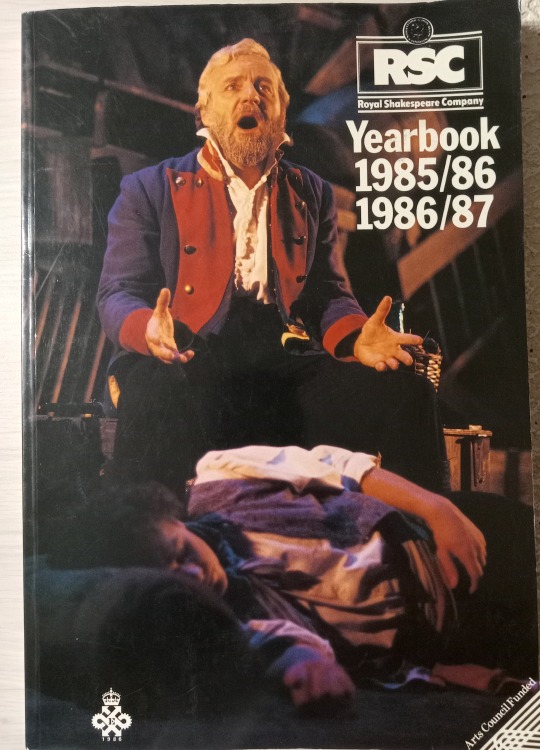
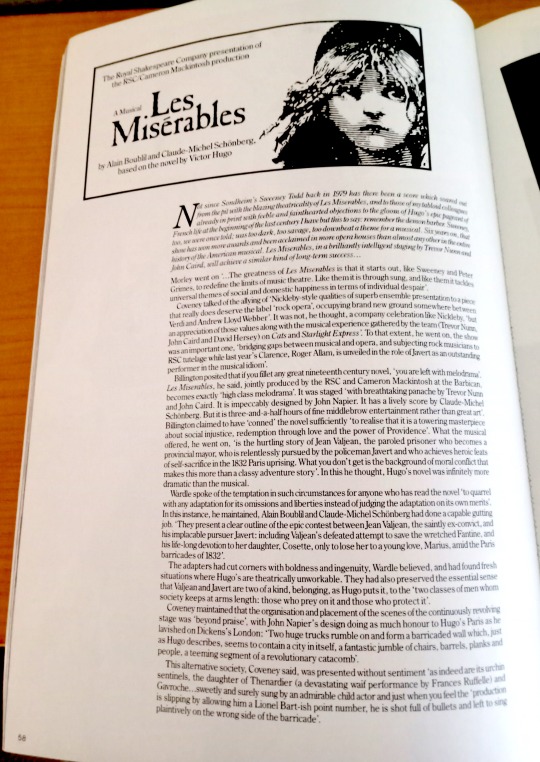
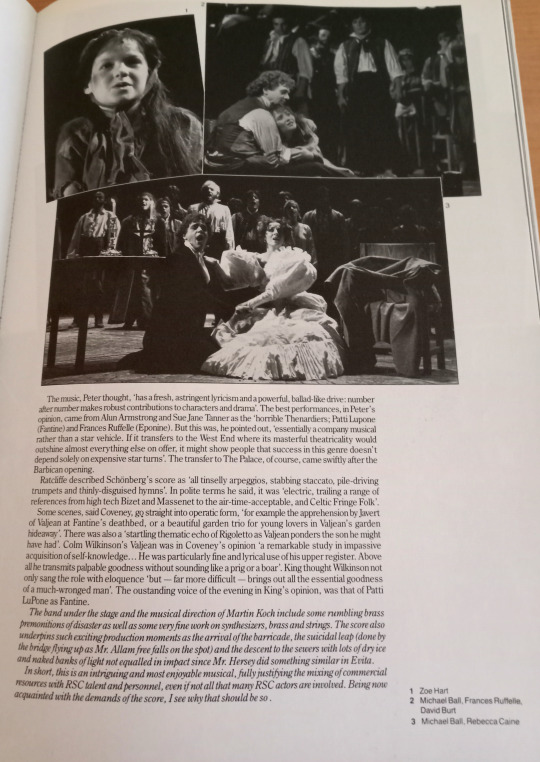
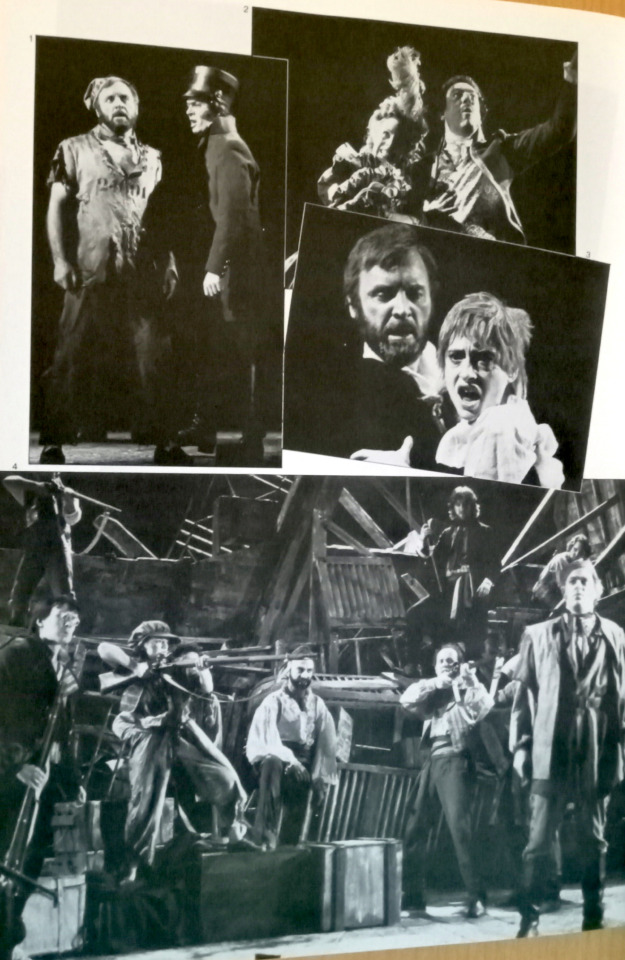
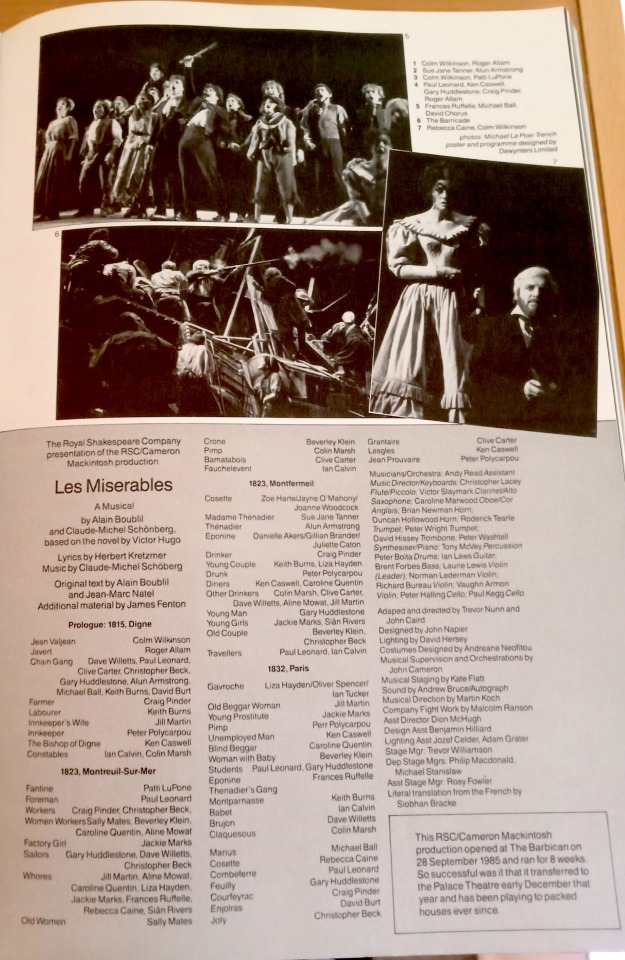
Happy 39th birthday to the London production of Les Misérables (which officially opened on 8 October 1985 at the Barbican Theatre, though previews began at the end of September)! By way of celebrations, scans from the 1985/86 / 1986/87 Royal Shakespeare Company Yearbook, which honoured the success of the Barbican production and its transfer to the Palace Theatre by making Colm Wilkinson and Michael Ball during 'Bring Him Home' its cover stars. The annual RSC Yearbook summarised productions in all of the company's (at the time five) theatres and on tour with production photography and critical commentary from newspapers and other media. Text from the pages above is under the cut below, with bracketed extra information to clarify some references.
Not since Sondheim’s Sweeney Todd back in 1979 has there been a score which soared out of the pit with the blazing theatricality of Les Misérables, and to those of my tabloid colleagues already in print with feeble and fainthearted objections to the show, I have but this to say: remember the demon barber. Sweeney, too, we were once told; was too dark, too savage, too downbeat a theme for a musical. Six years on, that show has won more awards and been acclaimed to more opera houses than any other in the entire history of the American musical. Les Misérables, in a brilliantly intelligent staging by Trevor Nunn and John Caird, will achieve a similar kind of long-term success …
[The Times’/Punch’s Sheridan] Morley went on. ‘… The greatness of Les Misérables is that it starts out, like Sweeney and Peter Grimes, to redefine the limits of music theatre. Like them it is through sung, and like them it tackles universal themes of social and domestic happiness in terms of individual despair.’
[The Financial Times’ Michael] Coveney talked of the allying of ‘Nickleby*-style qualities of ensemble presentation to a piece that really does deserve the label ‘rock opera’, occupying brand new ground somewhere between Verdi and Andrew Lloyd Webber. It was not, he thought, a company celebration like Nickleby, ‘but an appreciation of those values along with the musical experience gathered by the team (Trevor Nunn, John Caird and David Hersey) on Cats and Starlight Express.’ To that extent, he went on, the show was an important one, ‘bridging gaps between musical and opera, and subjecting rock musicians to RSC tutelage while last year’s Clarence [in the RSC 1984 production of Richard III], Roger Allam, is unveiled in the role of Javert as an outstanding performer in the musical idiom.’
[*The RSC's landmark 1980 production of an adaption of Charles Dickens’ The Life and Adventures of Nicholas Nickleby]
[The Guardian’s Michael] Billington posited that if you fillet any great nineteenth-century novel, ‘you are left with melodrama.’ Les Misérables, he said, jointly produced by the RSC and Cameron Mackintosh at the Barbican, becomes exactly ‘high class melodrama.’ It was staged ‘with breathtaking panache by Trevor Nunn and John Caird. It is impeccably designed by John Napier. It has a lively score by Claude-Michel Schönberg. But it is three-and-a-half hours of fine middlebrow entertainment rather than great art.’ Billington claimed to have ‘conned’ the novel sufficiently ‘to realise that it is a towering masterpiece about social injustice, redemption through love and the power of Providence.’ What the musical offered, he went on, ‘is the hurtling story of Jean Valjean, the paroled prisoner who becomes a provincial mayor, who is relentlessly pursued by the policeman Javert and who achieves heroic feats of self-sacrifice at the 1832 Paris uprising. What you don’t get is the background of moral conflict that makes this more than a classy adventure story.’ In this he thought, Hugo’s novel was infinitely more dramatic than the musical.
[The Times’ Irving] Wardle spoke of the temptation in such circumstances for anyone who has read the novel ‘to quarrel with any adaptation for its omissions and liberties instead of judging the adaptation on its own merits.’ In this instance, he maintained, Alain Boublil and Claude-Michel Schönberg had done a capable gutting job. ‘They present a clear outline of the epic contest between Jean Valjean, the saintly ex-convict, and his implacable pursuer Javert: including Valjean’s defeated attempt to save the wretched Fantine, and his life-long devotion to her daughter, Cosette, only to lose her to a young love, Marius, amid the Paris barricades of 1832.’
The adapters had cut corners with boldness and ingenuity, Wardle believed, and had found fresh situations where Hugo’s are theatrically unworkable. They had also preserved the essential sense that Valjean and Javert are two of a kind, belonging, as Hugo puts it, to the ‘two classes of men whom society keeps at arms length: those who prey on it and those who protect it.’
Coveney maintained that the organization and placement of the continuously revolving stage was ‘beyond praise’, with John Napier’s design doing as much honour to Hugo’s Paris as he lavished on Dickens’s London [in Nickleby]: ‘Two huge trucks rumble on and form a barricaded wall which, just as Hugo describes, seems to contain a city in itself, a fantastic jumble of chairs, barrels, planks and people, a teeming segment of a revolutionary catacomb.’
This alternative society, Coveney said, was presented without sentiment ‘as indeed are its urchin sentinels, the daughter of Thenardier (a devastating waif performance by Frances Ruffelle) and Gavroche … sweetly and surely sung by an admirable child actor and just when you feel the production is slipping by allowing a [writer of Oliver] Lionel Bart-ish point number, he is shot full of bullets and left to sing plaintively on the wrong side of the barricade.’
The music, [The Sunday Times’ John] Peter though, ‘has a fresh, astringent lyricism and a powerful, ballad-like drive: number after number makes robust contributions to character and drama.’ The best performances, in Peter’s opinion, came from Alun Armstrong and Susan Jane Tanner as the ‘horrible Thenardiers', Patti LuPone (Fantine) and Frances Ruffelle (Eponine). But this was, he pointed out, ‘essentially a company musical rather than a star vehicle. If it transfers to the West End where its masterful theatricality would outshine almost anything else on offer, it might show people that success in this genre doesn’t depend solely on expensive star turns.’ The transfer to the Palace, of course, came swiftly after the Barbican opening.
[The Observer’s Michael] Ratcliffe described Schönberg’s score as ‘all tinselly arpeggios, stabbing staccato, pile-driving trumpets and thinly-disguised hymns.’ In polite terms he said, it was ‘electric, trailing a range of references from high-tech Bizet and Massenet to the air-time acceptable, and Celtic Fringe Folk.’
Some scenes, said Coveney, go straight into operatic form, ‘for example the apprehension by Javert of Valjean at Fantine’s deathbed, or a beautiful garden trio for young lovers in Valjean’s garden hideaway.’ There was also a ‘startling thematic echo of Rigoletto as Valjean ponders the son he might have had.’ Colm Wilkinson’s Valjean was in Coveney’s opinion ‘a remarkable study in impassive acquisition of self-knowledge … He [has] particularly fine and lyrical use of his upper register. Above all he transmits palpable goodness without sounding like a prig or a boar [bore?].’ [The Sunday’s Telegraph’s Francis] King thought Wilkinson not only sang the role with eloquence ‘but – far more difficult – brings out the essential goodness of a much-wronged man.’ The outstanding voice of the evening in King’s opinion, was that of Patti LuPone as Fantine.
The band under the stage and the musical direction of Martin Koch include some rumbling brass premonitions of disaster as well as some very fine work on synthesizers, brass and strings. The score also underpins such exciting production movements as the arrival of the barricade, the suicidal leap (done by the bridge flying up as Mr Allam free falls on the spot) and the descent to the sewers with lots of dry ice and naked banks of light not equalled in impact since Mr Hersey did something similar in Evita.
In short, this is an intriguing and most enjoyable musical, fully justifying the mixing of commercial resources with RSC talent and personnel, even if not all that many RSC actors are involved.* Being now acquainted with the demands of the score, I see why that should be so. [Morley]
[* The RSC members who appeared in the Barbican production were Roger Allam, Alun Armstrong, and Susan Jane Tanner. Other RSC members at this time joined Les Mis in later companies, among them David Delve, who would replace Alun Armstrong as Thenardier.]
29 notes
·
View notes
Text
Raimiverse fancast
My fancast for an expanded Raimiverse fancast
Only recasting Venom since Topher was just not Venom. He wasn't.
Tobey Maguire as Spider-Man/Peter Parker
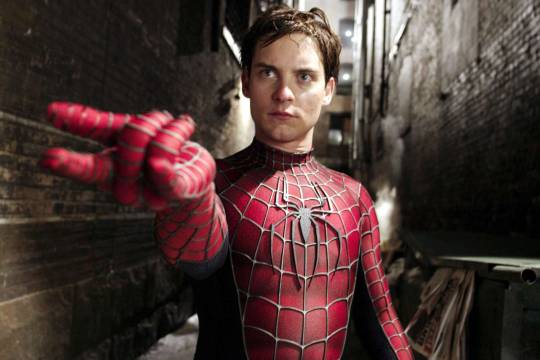
Kirsten Dunst as Mary-Jane Watson
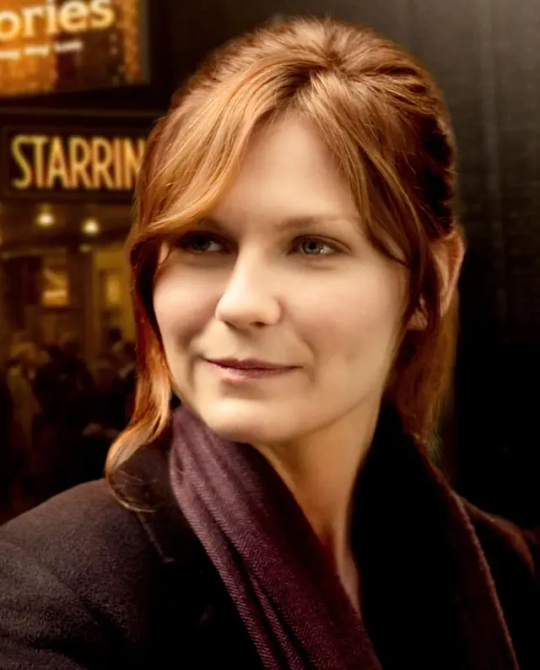
Sadie Sink as Spider-Girl/Mayday Parker

James Franco as Harry Osborn/New Goblin

Bryce Dallas Howard as Gwen Stacy
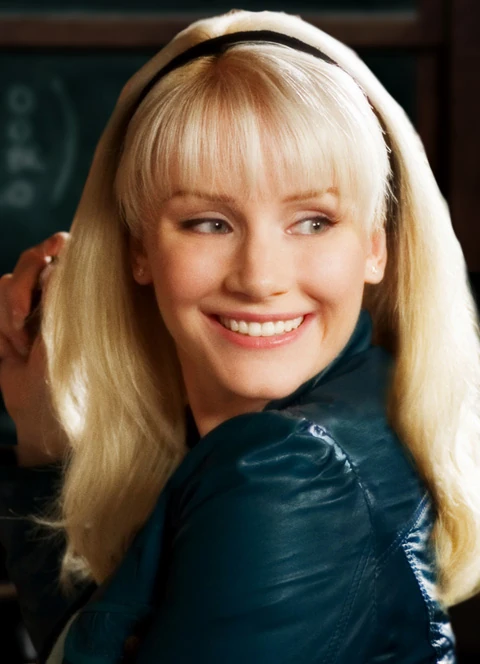
Rosemary Harris as Aunt May Parker
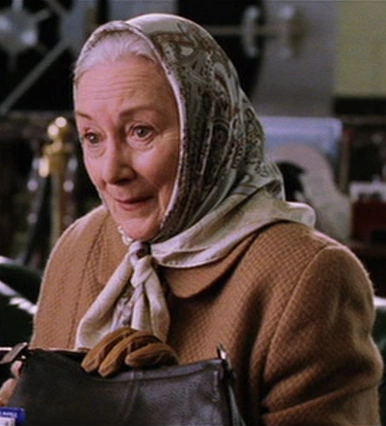
JK Simmons as J. Jonah Jameson

Bill Nunn as Robbie Robertson

Elizabeth Banks as Betty Brant
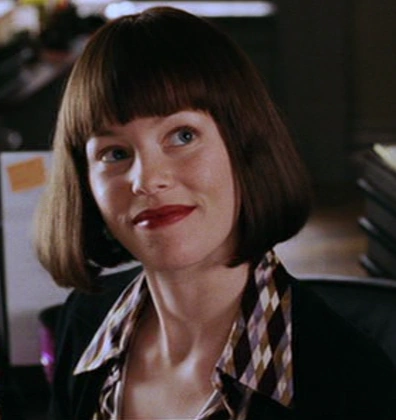
James Cromwell as Captain George Stacy
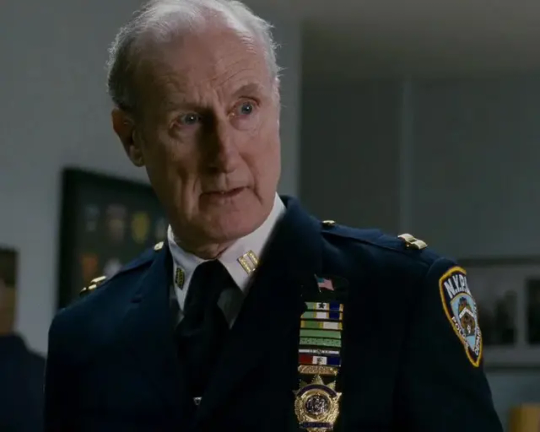
Gina Torres as Jean DeWolff
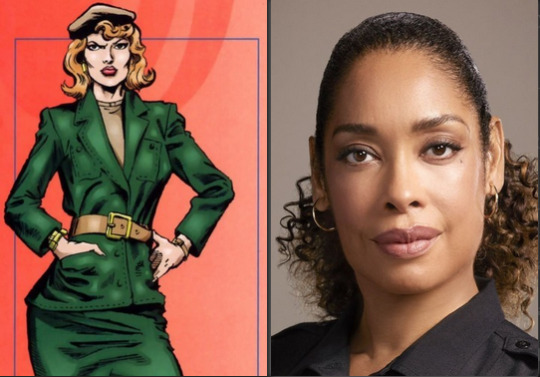
Glenn Close as Madame Webb
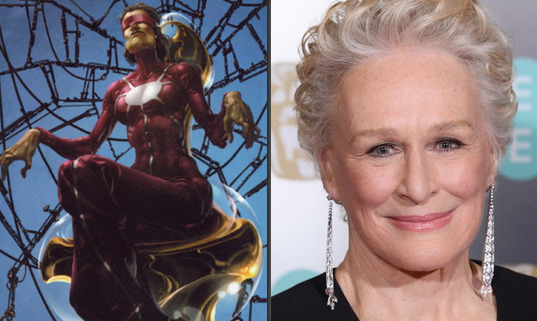
Joe Manganiello as Flash Thompson/Agent Venom

Willem Dafoe as Green Goblin/Norman Osborn
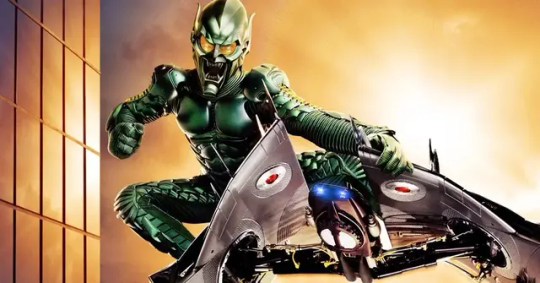
Alfred Molina as Doc Ock/Otto Octavius
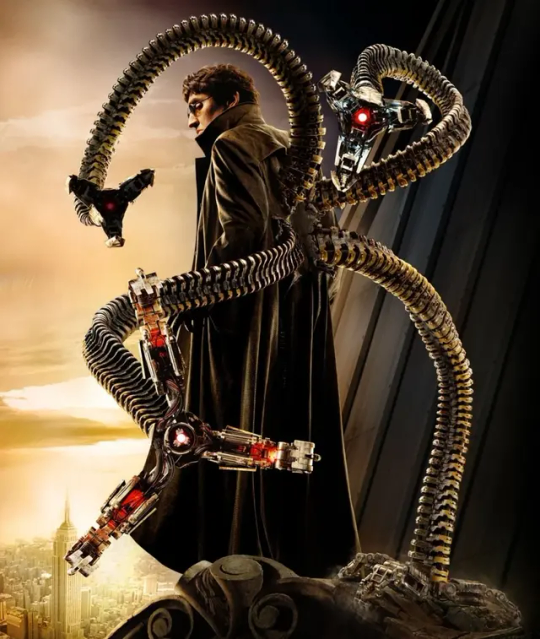
Thomas Hayden Church as Sandman/Flint Marko
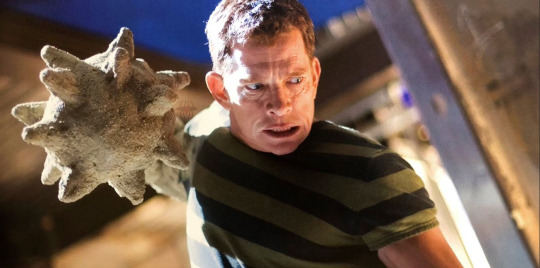
Skeet Ulrich as Venom/Eddie Brock

Matthew Lillard as Carnage/Cletus Cassidy
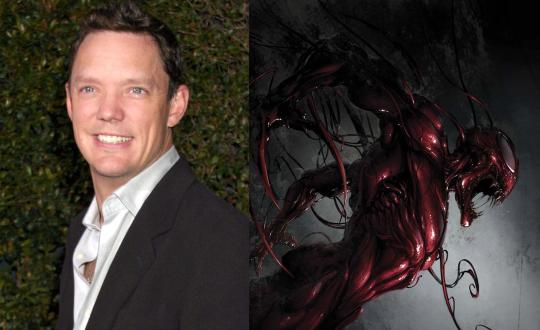
John Malkovich as The Vulture/Adrian Toombs
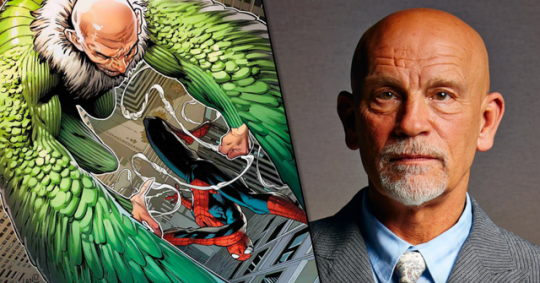
Anne Hathaway as Black Cat/Felicia Hardy(I know Raimi originally intended for her to be Vulture's daughter and the She-Vulture, but that was dumb)

Dylan Baker as The Lizard/Curt Connors
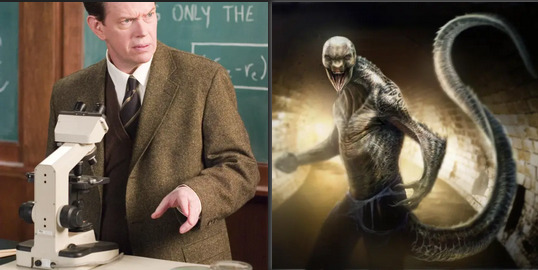
Bruce Campbell as Mysterio/Quentin Beck

Michael Clarke Duncan as Kingpin/Wilson Fisk

Arnold Vosloo as Scorpion/Mac Gargan
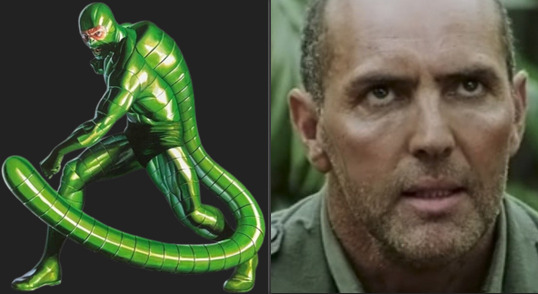
Ben Foster as Electro/Max Dillon

Kevin Grevioux as Tombstone/Lonnie Lincoln
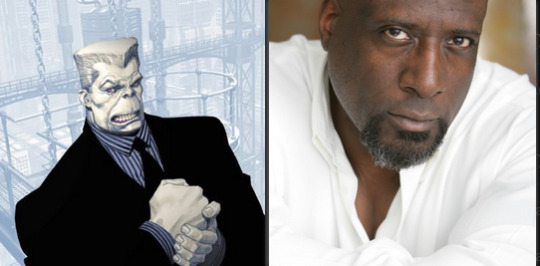
Jackie Chan as Mister Negative/Martin Li
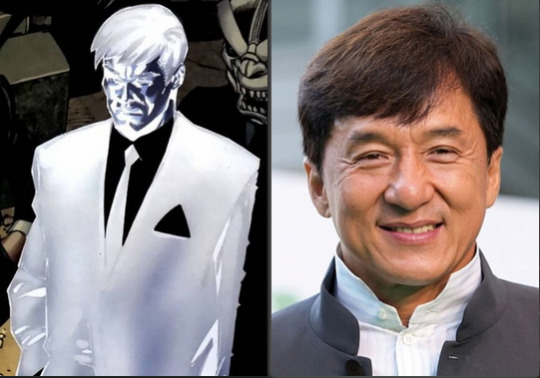
Keanu Reeves as Dr. Michael Morbius
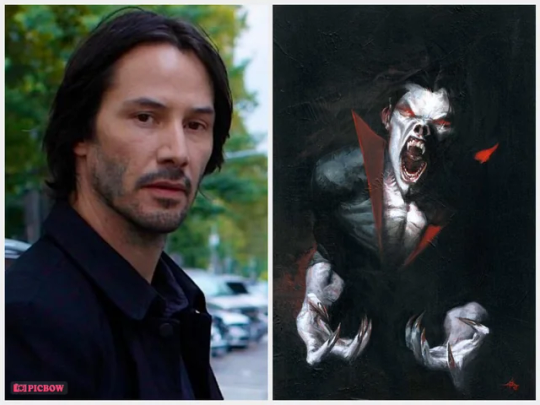
Doug Jones as Chameleon
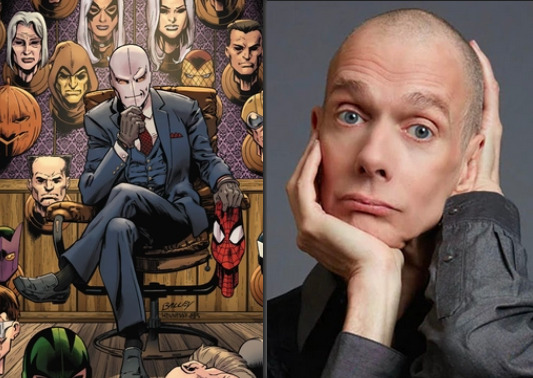
Matthew McConaughey as Hydro Man
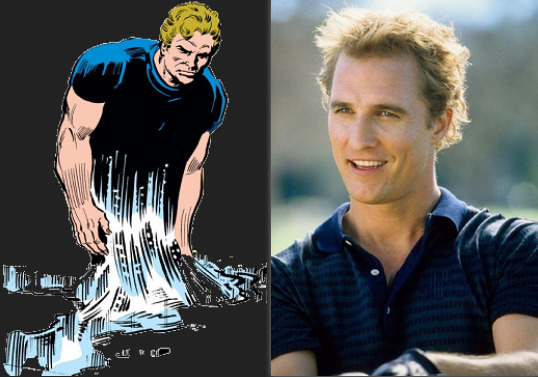
Due to tumblr's bullshit 30 photo limit, cann't post anymore
Ben Stiller as Shocker
Russell Crowe as Kraven the Hunter
Vinnie Jones as The Rhino/Aleksei Sytsevich
Brad Douriff as Hobgoblin/Roderick Kingsley
Daniel Day-Lewis as Iron Man/Tony Stark
Brad Pitt as Captain America/Steve Rogers
Karl Urban as Thor Odinson
Eric Bana as The Hulk/Bruce Banner
Milla Jovovich as Black Widow/Natasha Romanoff
Paul Walker as Hawkeye/Clint Barton
Kurt Russell as Nick Cage
Ewan McGregor as Ant-Man/Hank Pym
Natalie Portman as Wasp/Janet Van Dyne
Rachel Weisz as Scarlet Witch/Wanda Maximoff
Jake Gyllenhaal as Quicksilver/Pietro Maximoff
Denzel Washington as Black Panther/T'Challa
Charlize Theron as Captain Marvel/Carol Danvers
Cuba Gooding Jr. as War/Machine/James Rhodes
Hugh Jackmas as Wolverine
Patrick Stewart as Charles Xavier
Famke Janssen as Jean Grey
James Marsden as Cyclops/Scott Summers
Halle Berry as Storm/Ororo Munroe
Ioan Gruffudd as Mr Fantastic/Reed Richards
Jessica Alba as Invisible Woman/Sue Storm
Chris Evans as Human Torch/Johnny Storm
Michael Chiklis as The Thing/Ben Grimm
Laurence Fishburne as Silver Surfer
Oded Fehr as Doctor Strange/Stephen Strange
Ben Affleck as Daredevil/Matt Murdock
Jennifer Garner as Elektra
Thomas Jane as The Punisher
Terry Crews as Luke Cage
Nicholas Cage as Ghost Rider
Jim Carrey as Loki Laufeyson
Jude Law as Ultron
Ron Pearlman as Thanos
Ian McKellan as Magneto
Julian McMahon as Dr Doom
Rufus Sewell as Baron Mordo
#Marvel#Fancasts#Raimiverse#Spider Man#Peter Parker#Green Goblin#Venom#Doc Ock#Carnage#Mysterio#The Lizard#Vulture#Black Cat#Mister Negative#Morbius#Kraven The Hunter#Electro#Tombstone#Chameleon#Scorpion#Kingpin
10 notes
·
View notes
Text

MGM teacher Jeanette Bates (far left) giving a folk dancing lesson to young actors, circa 1938. Students (l-r): Bobby Kelly, Ann Rooney, Larry Nunn, Gene Eckman, and Virginia Weidler. Center: Darla Hood and Richard Haydel. Front right: Jackie Horner and Darryl Hickman.
22 notes
·
View notes
Text
Democrats are in a state of shock. Former U.S. President Donald Trump’s decisive defeat of Vice President Kamala Harris in the Electoral College and the popular vote has been disillusioning. The fact that Trump has grown his coalition feels like a rebuke of what Democrats have stood for since the 1960s.
In the months ahead, Democrats will engage in a grueling process of soul-searching and finger-pointing. The party needs to reimagine its strategy if it hopes to regain control of the White House and cut into the significant gains that the GOP made throughout the electoral map.
There will be strong pressure for Democrats to veer more sharply toward the center on several key issues, including taxes, regulation, energy, and immigration. One of the historical examples that will be showcased as a model for moving to the middle will be the Democratic Leadership Council (DLC), a small group of insiders who came together in 1985 to rebuild their party following the wreckage of President Ronald Reagan’s landslide victory against former Vice President Walter Mondale. While the DLC provides reason to believe that centrism can help pave a roadway back to the White House, which it did in 1992 and 1996, it also offers a warning of the potential long-term costs that centrism can pose to the health of a party.
Following Reagan’s 1984 reelection victory (winning 49 out of 50 states and around 59 percent of the popular vote), many Democratic officials and voters were scrambling. Reagan’s agenda had marked a sharp shift to the right in U.S. politics. During his inaugural address in 1981, Reagan had reset the terms of the debate by proclaiming that the government was the problem, not the solution. During his first four years in office, Reagan pushed national debate toward conservative positions that were once considered extreme, and he united a rightward alliance of evangelical Christians, neoconservatives, hawkish anti-communists, and business elites around the twin themes of anti-communism and lower taxation. Democrats, some of whom half-joked they would move overseas, didn’t know what to do next as they looked at the election returns. In an article for the Wall Street Journal, reporter James Perry wrote, “The agonizing and the hand-wringing already have begun. It will be a long and painful process.”
In 1985, Al From launched the DLC. He had previously served as executive director for the House Democratic Caucus from 1981 to 1985, which was chaired by Louisiana Rep. Gillis Long at the time. As Kenneth Baer recounts, their collaboration on the Committee on Party Effectiveness gave birth to the idea for the DLC. In 1982, they published “Rebuilding the Road to Opportunity,” a report that outlined the need to turn away from economic redistribution and toward economic growth and opportunity. From’s ambition was to revive the fading influence of moderate Democrats such as Long, who, in the 1960s and 1970s, had helped bridge the divide between Northern liberals and Southern conservatives. From was also inspired by the work of Washington Sen. Henry “Scoop” Jackson, who had broken with his party in the 1970s over foreign policy, believing that his colleagues had become too dovish after Vietnam.
From and Will Marshall, who was a speechwriter and analyst for Long, joined a group of distinguished Democrats in launching the project, including Missouri Rep. Richard Gephardt, Georgia Sen. Sam Nunn, and some governors, including Virginia Gov. Chuck Robb, and Arizona Gov. Bruce Babbitt. “We Democrats can’t continue to blame bad candidates, bad tactics, and bad luck,” Nunn warned. Several younger politicians were attracted by some of the ideas that From and Marshall were working on through this small organization. In 1988, the DLC was shattered when Vice President George H.W. Bush walloped Massachusetts Gov. Michael Dukakis in the presidential election, after a blistering campaign that smeared the moderate technocratic governor as a far-left liberal by tapping into nationalistic patriotism and race-baiting. In 1989, Marshall established a think tank called the Progressive Policy Institute to advance DLC ideas and attempt to reframe the debate before the next presidential election.
At the heart of the DLC agenda was the imperative to shift toward the center. On domestic policy, this meant promoting market-based solutions to economic intervention, as well as reforms to the social safety net, to promote individual responsibility and work incentives. On foreign policy, the DLC called for more military intervention and support in targeted conflicts. The DLC came under intense political fire from liberal Democrats who warned that these arguments would erode the party’s best traditions, echoing Massachusetts Sen. Ted Kennedy’s warning, which he made at the 1980 Democratic National Convention, against forgetting the fight for “the cause of the common man and the common woman.” Historian Arthur Schlesinger Jr. wrote in the New York Times that “me-too Reaganism” would be disastrous. The DLC vision, Schlesinger argued, overstated the popularity of Reaganism and promoted wrong-headed policies. Moreover, he wrote, “If American voters are in a conservative mood, they will surely choose the real thing and not a Democratic imitation.”
But From and his colleagues felt that if Democrats did not shift dramatically, then the White House would remain in Republican hands for decades to come. From said the talking points from figures such as Schlesinger were “advanced by the standpatters in our party, who yearn for a return to the pre-Reagan status quo at home and advocate a neo-isolationism abroad.”
Of all the politicians who the DLC worked with, none was as important as Arkansas Gov. Bill Clinton. When From and Clinton met in Little Rock in 1989, the DLC put an offer on the table that the governor could not refuse: “If you agree to become chairman of the DLC, we’ll pay for your travel around the country, we’ll work together on an agenda, and I think you’ll be president one day, and we’ll both be important.” Clinton served as the DLC chairman from 1990 to 1991. From followed through on his promise to help elevate Clinton. The DLC established chapters in numerous states and launched a national convention, branding itself as the “mainstream voice of the Democratic Party.” During his campaign in 1992 against Bush, Clinton reminded voters and the media of his reputation as a New Democrat with great pride. The DLC helped Clinton raise money, round up endorsements, and knock off primary challengers. The governor chose Tennessee Sen. Al Gore as his running mate, resulting in two young southerners at the top of the ticket who shared an affinity for the centrist vision. The party platform included text about a “new covenant to repair the damaged bond between the American people and their government, that will expand opportunity, insist upon greater individual responsibility in return, restore community, and insure national security.”
To be sure, Clinton didn’t totally jettison older Democratic ideals. His relationship to the DLC, as historians Judith Stein and Nelson Lichtenstein argued in their 2023 book on Clinton’s presidency, was “far more ambiguous.” Clinton simultaneously returned to core Democratic arguments about the role of government in the economy and stressed his commitment to working families. Nonetheless, the influence of the DLC loomed large as Clinton attempted to position himself as a Democrat who mainstream voters could accept in a more conservative era. The plan worked. Clinton won the presidency, and he would be reelected four years later over Kansas Sen. Bob Dole, a Republican.
The DLC model will tempt Democrats in 2024 as they confront the governing coalition that MAGA Republicans have put into place. After all, the DLC helped Democrats win the White House in 1992 and 1996. Some argue that Barack Obama followed the DLC template, as well, particularly on economic and financial policy, which was important to his victories in 2008 and 2012.
As tempting as this historical model might be, Democrats will do well to understand the costs that were also a result of the strategy—costs that Democrats are still paying today in painful ways. One of the signature decisions in the first year of Clinton’s presidency was to sign the North American Free Trade Agreement (NAFTA). The agreement, which opened the flow of commerce between the United States, Canada, and Mexico, had been worked on by Bush before the end of his term. Clinton, who saw NAFTA as a way to brandish his New Democrat bonafides, stressed that free trade was an inevitable reality and that it would lift all boats.
Not everyone agreed. During the 1996 presidential campaign, third-party candidate Ross Perot, who received over 19 million votes, said the “giant sucking sound” U.S. workers heard was well-paying jobs being moved abroad. Many liberals and progressives joined Perot in his critique as Congress considered what to do. In 1993, Vermont Rep. Bernie Sanders, an independent, said, “NAFTA may be a good deal for the people who own our corporations, but it is a bad deal for American workers, for our family farmers, and it is bad for the environment.” Gephardt, who was also House majority leader at the time, led a campaign against the bill, as did Michigan Rep. David Bonior, House majority whip.
Clinton pushed back, sending his vice president, Gore, to appear on CNN’s “Larry King Live” in a televised debate against Perot in November. Gore won. The House and Senate passed the NAFTA within a few weeks. The new Democratic vision was triumphant. In his signing statement, Clinton proclaimed, “We cannot stop global change. We cannot repeal the international economic competition that is everywhere. We can only harness the energy to our benefit. Now we must recognize that the only way for a wealthy nation to grow richer is to export, to simply find new customers for the products and services it makes.”
By 2000, the U.S. economy was roaring, and the emergence of a vibrant high-tech sector seemed to promise a new era of economic growth. The fact that Clinton ended his time in power with low unemployment, minimal inflation, and federal surpluses seemed reason to cheer.
Looking back, however, it has become clear that many working families suffered greatly as a result of NAFTA. The middle way didn’t provide economic hope or security. It was part of a switch to what some historians, such as Gary Gerstle, have called the “neo-liberal order” that privileged unfettered markets regardless of the impact on average Americans. “Deindustrialization has diminished the wealth, power and health of working-class Americans arguably more than any other single culprit,” Dan Kaufmann recently wrote in the New York Times. “The passage of NAFTA remains one of the most consequential events in recent American political and economic history.” While deindustrialization was well underway by the 1970s, the historic trade agreement greatly accelerated these destructive processes.
Now, a reimagined Republican Party rests on a foundation of working-class voters. And this year they were joined by working Latino and Black voters, who are likewise feeling the squeeze of long-term economic security. Along with other Republicans, they have forged a governing coalition that keeps growing and has thrown the Democrats into disarray. Surveying the results from last week, journalist Ezra Klein said on his show that the “Obama coalition is over. It is defeated and exhausted. What comes next needs to be new.”
For all its political benefits, the history of the DLC reveals two fundamental problems that centrist politics can create. First, it can result in a party leaving behind traditions that remained at the heart of its appeal to most supporters. Second, they can dissuade parties from the hard work of really reimagining their ideas and constituencies in bold ways that are usually essential to realignments.
With an eye on 2028, Democrats must watch for policy decisions that could help them at the electoral level in the near future but harm their long-term potential to create a new governing coalition to supplant the one Obama built.
9 notes
·
View notes
Text
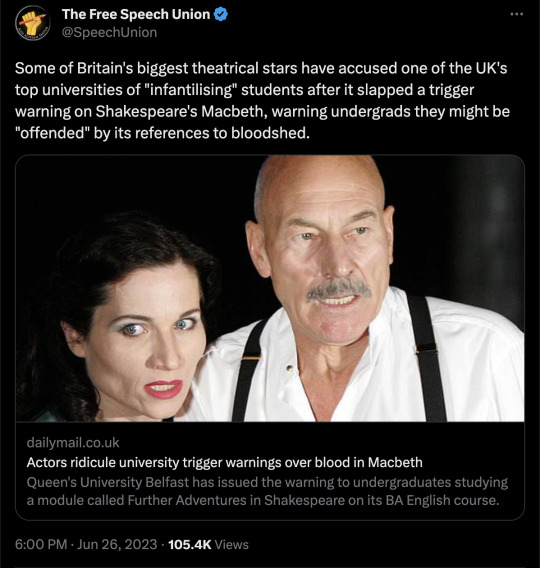
By: Chris Hastings
Published: Jun 25, 2023
Is this a case of crazy wokery I see before me? Actors ridicule university trigger warnings over blood in Macbeth
Queen University Belfast has issued a warning to students studying Shakespeare
It stressed Macbeth 'could cause offence' due to its depictions of 'bloodshed'
Similar warnings have been applied to the Twelfth Night and Titus Andronicus
It is Shakespeare's most violent play – a bloody saga packed with stabbing, strangling and poisoning that reaches a grisly climax with a beheading.
And for more than 400 years audiences have been enthralled – if a little disturbed – by the butchery of Macbeth.
But now one of the UK's top universities stands accused of 'infantilising' students after it warned them they might be 'offended' by the 'bloodshed' in the play.
Queen's University Belfast has issued the warning to undergraduates studying a module called Further Adventures in Shakespeare on its BA English course.
'You are advised that this play could cause offence as it references and / or deals with issues and depictions relating to bloodshed,' the warning, a copy of which has been obtained by this newspaper under Freedom of Information laws, states.
The university has also applied similar warnings to the Bard's Richard III, Twelfth Night and Titus Andronicus.
Some of Britain's biggest theatrical stars last night branded the warnings counterproductive and unnecessary. They point out that Macbeth, which was first performed in 1606, is particularly popular with schoolchildren.
Sir Ian McKellen, who starred opposite Dame Judi Dench in Sir Trevor Nunn's landmark 1976 RSC production, said warnings such as this could undermine the dramatic impact of the piece.
He said: 'My sister (a teacher) used to show Sir Trevor Nunn's TV version of the 1976 Macbeth to her teenage students.
'She'd pull down the blinds, start the video and then leave the classroom and count the minutes till she heard the first scream from within. Had the youngsters had trigger warnings in advance, the effect of the play would have been considerably diminished.'
He added: 'I remember talking to a priest who saw a number of performances of the stage production at the Stratford Other Place.
'He would hold out his crucifix throughout the performance, to protect the audience from the devilry conjured by the cast. I suppose these triggers are something similar.'
Call The Midwife star Jenny Agutter, who has acted in Shakespeare's The Tempest, King Lear and Love's Labour's Lost, said: 'I don't understand why anyone should feel warnings are necessary for Shakespeare's plays. Unless we need to be constantly warned that depicting human nature might cause offence.'
Sir Richard Eyre, the former Director of the National Theatre who has directed productions of Hamlet, Richard III and King Lear, said: 'It's completely fatuous and totalitarian to try to police people's minds with these absurd warnings. Ridiculous, contemptible, infantilising.
Presumably the people putting out the trigger warnings feel they are able to cope with the content of these plays, but weaker, younger, less intelligent people aren't.' Doctor Who star David Tennant and The Good Wife actress Cush Jumbo are due to star in a new production of Macbeth which opens in London in December. It is one of four major productions of the play set to open in the UK.
Queen's Belfast's trigger warning for Twelfth Night centres on what it calls the 'depictions relating to sexuality or gender. Warnings for Richard III and Titus Andronicus relate to depictions of disability in the former and 'race and or racism' in the latter. A spokesperson for Queen's University Belfast declined to comment.
==
'[A priest] would hold out his crucifix throughout the performance, to protect the audience from the devilry conjured by the cast. I suppose these triggers are something similar.'
Very apt. It's magical thinking. Especially considering they've not only been shown to not work, they've been shown to make things worse.
Also: Spoiler, much?
#Queen's University#trigger warnings#Shakespeare#Macbeth#emotional fragility#infantilization#perpetually offended#easily offended#student fragility#i'm offended#offended#religion is a mental illness
35 notes
·
View notes
Note
Who were some of the other "Future Leaders" in that Time piece, and did they go anywhere?
Yes, there were: Lamar Alexander (33 years old at the time); Les Aspin (35); Kit Bond (35); Julian Bond (34); Bill Bradley (30); Jerry Brown (36); Willie Brown (40); Pat Buchanan (35); William Cohen (33); Morris Dees (36); Ron Dellums (38); Marian Wright Edelman (35); Elizabeth Hanford aka Elizabeth Dole (37); Richard Holbrooke (33); Maynard Jackson (36); Barbara Jordan (38); Vernon Jordan (38); Doris Kearns aka Doris Kearns Goodwin (31); Jack Kemp (38); John Lewis (34); Eleanor Holmes Norton (37); Sam Nunn (35); Ross Perot (44); Jay Rockefeller (37); Carl Sagan (39); Lowell Weicker (43); Andrew Young (42). There were more -- it was a list of 200 future leaders, so they took a lot of shots at the hoop.
They also kind of cheated because there were also a bunch of "Future Leaders" who were already leaders like Ted Kennedy, Cecil Andrus, Ralph Nader, Lawton Chilres, Joan Ganz Cooney, Charles Rangel, Billie Jean King, Donald Rumsfeld, Bill Russell, and Gloria Steinem.
It's the July 15, 1974 issue of TIME if you're interested.
4 notes
·
View notes
Text
Ian and Ian McKellen in The Marquis of Keith at the Aldwych Theatre, London 19 November 1974. He made to Ian a moving tribute the next day of his sudden passing. No word. Beautifully written
« In 1989, the Royal Shakespeare Company actors were rehearsing Trevor Nunn’s production of Othello in a church hall in London when the news reached us that Laurence Olivier had died. The greatest theatre man of our time was gone. The curtain had fallen. It seemed heartless to proceed, particularly with a play that Olivier had triumphed in, so we abandoned rehearsals as Trevor and I went off to record our tributes for BBC.I remembered this yesterday afternoon, with more bad news at rehearsals, again with Trevor and the RSC. We were discussing the storm scenes in King Lear. Jonathan Hyde blurted out his wife had just phoned to say Ian Richardson had died in his sleep, aged 72. It seemed incredible. I had seen him so recently onstage, gloriously strutting as Epicure Mammon in the National Theatre’s The Alchemist. Trevor reminisced about his first major production for the RSC, The Revenger’s Tragedy, with Richardson starring as Vendice. This was but one of a string of dramatic villains which culminated, as far as the general public is concerned, on television, with his dastardly Urquart, the Prime Minister in Michael Dobbs’ House of Cards.Over a decade or more, Richardson was a shining star at Stratford for the RSC. When I played the Brooklyn Academy of Music in 1974, where he had just shared Richard 11 and Bolingbroke with Richard Pasco on an RSC tour, I was mistaken for him a couple of times. The next year we were both cast in The Marquis of Keith, again for the RSC. It is not an easy play and mine a fiendish part. Richardson as ever was effortlessly in charge of his own, whilst I floundered, even to the extent of forgetting my lines at a number of performances. At each shameful dry, Ian helped me through by providing a subtle prompt and although he must have disapproved of what can only be called “an error in stagecraft”, he never showed it. He was a company man and a gentleman.He was brought up in Scotland although drama school training had eradicated his native accent. He was most famous for his voice which could mellifluously flute or bellow, an instrument that any Lear would envy. Of late he regretted that he wasn’t much considered for the great roles he was fitted to play and said something to the effect that “Lear only goes to people like McKellen these days”. On and off stage he hid what perhaps he felt to be a failing: his height. A few inches short of six feet, he always wore lifts hidden within his shoes. Yet he needn’t have worried. Striding on as Vendice, Richard 111, Angelo, or Richard 11 he seemed as imposing as the tallest of actors. Within him was the fire and the power. It exploded in the jealousy of his magnificent Ford in The Merry Wives of Windsor just as effectively as in the tragic roles. If only he had played King Lear »
Ian McKellen, 10 February 2007
Source: http://www.mckellen.com/writings/070210ir.htm

5 notes
·
View notes
Text
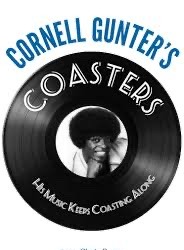
Cornell Gunter (November 14, 1936 – February 26, 1990) was a rhythm and blues singer, most active in the 1950s and 1960s. He was born in Coffeyville, Kansas. He was inducted into the Rock and Roll Hall of Fame in 1987 as a member of The Coasters.
He was an original member of The Platters. He had recorded with the yet-unnamed Platters, singing back-up on Big Jay McNeely’s recording “Nervous Man Nervous” on Federal Records. He was a member of The Flairs and The Coasters. The title song from The Green Eyed Blonde was sung by him. Will “Dub” Jones and joined The Coasters as replacements for Bobby Nunn and Leon Hughes in early 1958. He left the Coasters, he toured with Dinah Washington. He was part of a group called “D’s Gentleman” which featured future members of The Dells Charles Barksdale and Johnny Carter as well as Richard Harris and William Herndon. He formed his Coasters group; they were usually billed as “The Fabulous Coasters”. He made several solo singles in the late 1950s and early 1960s, including a cover version of “You Send Me”.
His sister, Shirley Gunter, recorded with The Flairs and released with the Queens and in solo in the late 1950s and early 1960s. Ace Records released a compilation album in 2006 of Shirley’s recordings from the 1950s entitled Oop Shoop: The Flair and Modern Recordings (1953–57).
Another sister, Gloria Gunter, recorded the singles “Move On Out” and “Your Love Reminds Me” (Arch #1610). “Move On Out” was an answer to The Coasters’ hit “Yakety Yak”, on which he sang. Both sides of the record were made available on CD in 2006. “Move On Out” appears on Rock ‘n’ Roll Mamas (Popcorn #6004), and “Your Love Reminds Me” appears on Rare Female Doo Wops(Popcorn #6005).
He was in the process of making a new comeback when an unknown assassin shot him in his car in Las Vegas. The survivors of his group continue to tour as “The Original Cornell Gunter’s Coasters Inc.” #africanhistory365 #africanexcellence
0 notes
Text

Do the Right Thing
película de 1989 dirigida por Spike Lee
Do the Right Thing (en España, Haz lo que debas; en Argentina y en Chile, Haz lo correcto) es una película estadounidense de 1989, escrita, dirigida y producida por Spike Lee, protagonizada por el propio director y por Danny Aiello, Ossie Davis, Ruby Dee, Richard Edson, Giancarlo Esposito, Bill Nunn y John Turturro.
0 notes
Text
Celebrity Deaths 2023
JANUARY
Gangsta Boo - Jan. 1 (Rapper)
Fred White - Jan. 1 (Drummer)
Immy Nunn - Jan. 1 (TikTok Star)
Galee Galee - Jan. 1 (Rapper)
Ken Block - Jan. 2 (Race Car Driver)
Frank Galati - Jan. 2 (Director)
Suzy McKee Charnas - Jan. 2 (Novelist)
Alan Rankine - Jan. 3 (Singer)
Elena Huelva - Jan. 3 (TikTok Star)
James D. Brubaker - Jan. 3 (Producer)
Peter Rawley - Jan. 3 (Producer)
Asia LaFlora - Jan. 4 (TikTok Star)
Sim Wong Hoo - Jan. 4 (CEO Of Creative Technology)
Hans Rebele - Jan. 4 (Soccer Player)
Arthur Duncan - Jan. 4 (Dancer)
Richard Thornton - Jan. 4 (Swim Coach)
Taylor Lewis - Jan. 5 (Reality Star)
Earl Boen - Jan. 5 (Movie Actor)
Mike Hill - Jan. 5 (Film Editor)
Russell Pearce - Jan. 5 (Politician)
Quentin Williams - Jan. 5 (Politician)
Michael Snow - Jan. 5 (Multimedia Artist)
Gianluca Vialli - Jan. 6 (Soccer Player)
Owen Roizman - Jan. 6 (Cinematographer)
Adam Rich - Jan. 7 (TV Actor)
Noah Brady - Jan. 7 (TikTok Star)
Russell Banks - Jan. 7 (Poet)
Joseph A. Hardy III - Jan. 7 (Entrepreneur)
Lynette Hardaway - Jan. 8 (Activist)
Bernard Kalb - Jan. 8 (Journalist)
Melinda Dillon - Jan. 9 (Movie Actress)
Ahmaad Galloway - Jan. 9 (Football Player)
Charles Simic - Jan. 9 (Poet)
King Constantine II - Jan. 10 (King)
George Pell - Jan. 10 (Religious Leader)
Patriarch Irenaios - Jan. 10 (Religious Leader)
Jeff Beck - Jan. 10 (Guitarist)
Tatjana Patitz - Jan. 11 (Model)
Carole Cook - Jan. 11 (Stage Actress)
Taylor LeJeune aka Wafffler69 - Jan. 11 (TikTok Star)
Ben Masters - Jan. 11 (TV Actor)
Charles Kimbrough - Jan. 11 (Stage Actor)
*Lisa Marie Presley - Jan. 12 (Rock Singer)
Lee Tinsley - Jan. 12 (Baseball Player)
Robbie Bachman - Jan. 12 (Drummer)
Odele Cape - Jan. 12 (Family Member) *John Ventimiglia's Daughter*
Paul Johnson - Jan. 12 (Journalist)
Robbie Knievel - Jan. 13 (Daredevil)
Al Brown - Jan. 13 (Movie Actor)
Yoshio Yoda - Jan. 13 (Movie Actor)
Julian Sands - Jan. 13 (Movie Actor)
Wally Campo - Jan. 14 (Movie Actor)
C.J. Harris - Jan. 15 (Country Singer)
Yung Hashtag - Jan. 15 (Rapper)
Yoshimitsu Yamada - Jan. 15 (Martial Artist)
Lloyd Morrisett - Jan. 15 (Psychologist)
Gina Lollobrigida - Jan. 16 (Movie Actress)
Jay Briscoe - Jan. 17 (Wrestler)
Michael Lehrer - Jan. 17 (Comedian)
Lucile Randon - Jan. 17 (Supercentenarian) *She Was 118 Years Old*
Edward Pressman - Jan. 17 (Producer)
Sandra Seacat - Jan. 17 (Movie Actress)
Violet Flowergarden - Jan. 17 (YouTube Star)
Renee Geyer - Jan. 17 (Jazz Singer)
Chris Ford - Jan. 17 (Basketball Player)
Van Conner - Jan. 18 (Bassist)
Yun Jung-Hee - Jan. 19 (TV Actress)
David Crosby - Jan. 19 (Guitarist)
Anton Walkes - Jan. 19 (Soccer Player)
Sal Bando - Jan. 20 (Baseball Player)
Stella Chiweshe - Jan. 20 (World Music Singer)
Ava Wood - Jan. 20 (TikTok Star)
Deborah Barak - Jan. 21 (Business Executive)
Slick Goku - Jan. 21 (YouTube Star)
Linda Kasabian - Jan. 21 (Family Member) *Robert Kasabian's Wife*
Sal Piro - Jan. 22 (Movie Actor)
Nikos Xanthopoulos - Jan. 22 (Movie Actor)
Leopoldo Roberto Garcia Pelaez Benitez - Jan. 23 (Comedian)
Lance Kerwin - Jan. 24 (Movie Actor)
Jeremy Ruehlemann - Jan. 24 (Model)
*Enkyboy - Jan. 25 (TikTok Star)
**Cindy Williams - Jan. 25 (TV Actress)
Shantabai Krushnaji Kamble - Jan. 25 (Non-Fiction Author)
Jesse Nathaniel Lemonier - Jan. 26 (Football Player)
Billy Packer - Jan. 26 (Sportscaster)
Gregory Allen Howard - Jan. 27 (Screenwriter)
Sylvia Syms - Jan. 27 (Movie Actress)
Alfred Leslie - Jan. 27 (Painter)
Floyd Sneed - Jan. 27 (Drummer)
Lisa Loring - Jan. 28 (TV Actress)
Kevin O'Neal - Jan. 28 (Movie Actor)
Tom Verlaine - Jan. 28 (Guitarist)
Annie Wersching - Jan. 29 (TV Actress)
Brandon Smiley - Jan. 29 (Family Member) *Rickey Smiley's Son*
Kyle Smaine - Jan. 29 (Freestyle Skier)
Barrett Strong - Jan. 29 (Songwriter)
George R. Robertson - Jan. 29 (Movie Actor)
Hazel McCallion - Jan. 29 (Politician)
Gabriel Tacchino - Jan. 29 (Pianist)
Conner Flowers - Jan. 30 (Family Member) *Olivia Flowers's Brother*
Ann McLaughlin Korologo - Jan. 30 (Politician)
Bobby Hull - Jan. 30 (Hockey Player)
Charlie Thomas - Jan. 31 (Blues Singer)
Joe Moss - Jan. 31 (Football Coach)
Andrea Thompson - Jan. ?? (Family Member) *Tristan Thompson's Mother*
FEBRUARY
Stanley Tobias Wilson Jr. - Feb. 1 (Football Player)
Lanny Poffo - Feb. 2 (Wrestler)
Butch Miles - Feb. 2 (Drummer)
Yung Trappa - Feb. 2 (Rapper)
Gloria Maria - Feb. 2 (Journalist)
Gerardo Islas - Feb. 2 (Politician)
Paco Rabanne - Feb. 3 (Fashion Designer)
Paul Martha - Feb. 4 (Football Player)
Arnold Schulman - Feb. 4 (Playwright)
Pervez Musharraf - Feb. 5 (Politician)
Lilly Kimbell - Feb. 5 (Tennis Player)
Christian Atsu - Feb. 6 (Soccer Player)
Billy Thomson - Feb. 6 (Soccer Player)
Burt Bacharach - Feb. 8 (Composer)
Branka Veselinovic - Feb. 8 (Movie Actress)
Miroslav Blazevic - Feb. 8 (Soccer Coach)
Cody Longo - Feb. 8 (TV Actor)
Kaleb Boating - Feb. 9 (Football Player)
Marcos Alonso Pena - Feb. 9 (Soccer Player)
Kiernan aka Forbes - Feb. 10 (Rapper)
Larry Coyer - Feb. 10 (Football Coach)
Hugh Hudson - Feb. 10 (Director)
Carlos Saura - Feb. 10 (Director)
Dave Hollis - Feb. 11 (Entrepreneur)
Austin Major - Feb. 11 (TV Actor)
Howard Bragman - Feb. 11 (Publicist)
Tito Fernandez - Feb. 11 (World Music Singer)
Brianna Ghey - Feb. 11 (???)
David Jolicoeur - Feb. 12 (Rapper)
Diana Deets - Feb. 12 (Model)
Coconut Kitty - Feb. 12 (Instagram Star)
Conrad Dobler - Feb. 13 (Football Player)
Savannah Watts - Feb. 13 (Family Member) *Laura Lee Watts's Daughter*
Tony Schnur - Feb. 13 (Movie Actor)
Jerry Jarrett - Feb. 14 (Wrestler)
Tohru Okada - Feb. 14 (Music Producer)
Raquel Welch - Feb. 15 (Movie Actress)
Paul Berg - Feb. 15 (Biologist)
Paul Jerrard - Feb. 15 (Hockey Coach)
Buncha - Feb. 15 (Dog)
Simone Ann-Marie Edwards - Feb. 16 (Basketball Player)
Tim McCarver - Feb. 16 (Baseball Player)
Kyle Jacobs - Feb. 17 (Songwriter)
Stella Stevens - Feb. 17 (Movie Actress)
David O'Connell - Feb. 18 (Priest)
Barbara Bosson - Feb. 18 (TV Actress)
Jim Thomas Broyhill - Feb. 18 (Politician)
Richard Belzer - Feb. 19 (TV Actor)
Greg Foster - Feb. 19 (Olympic Athlete)
*Jansen Panettiere - Feb. 19 (Movie Actor)
Dickie Davies - Feb. 19 (TV Show Host)
Maliboo Ziegler - Feb. 19 (Dog)
Ryan Keeler - Feb. 20 (Football Player)
Alicia Allain - Feb. 22 (Family Member) *John Schneider's Wife*
Ahmed Qurei - Feb. 22 (Politician)
John Motson - Feb. 23 (Sportscaster)
Tony Earl - Feb. 23 (Politician)
Walter Mirisch - Feb. 24 (Film Producer)
Matt Pobereyko - Feb. 25 (Baseball Player)
Gordon Pinsent - Feb. 25 (Movie Actor)
Ali Yafie - Feb. 25 (Religious Leader)
Betty Boothroyd - Feb. 26 (Politician)
Ricou Browning - Feb. 27 (Movie Actor)
MARCH
Just Fontaine - March 1 (Soccer Player)
Jerry Richardson - March 1 (Football Player)
Irma Serrano - March 1 (Fold Singer)
Anise Koltz - March 1 (Poet)
Steve Mackey - March 2 (Musician)
Tom Sizemore - March 3 (TV Actor)
Sara Lane - March 3 (Movie Actress)
David Lindley - March 3 (Guitarist)
Phil Eugene Batt - March 4 (Politician)
Gary Rossington - March 5 (Guitarist)
Denise Russo - March 5 (Reality Star)
Bob Goody - March 5 (TV Actor)
Georgina Beyer - March 6 (Former Mayor Of Carterton)
Tom Love - March 7 (Executive Chairman Of Love's Travel Stops & Country Stores)
Peterson Zah - March 7 (Politician)
Matt Davies - March 7 (YouTube Star)
Jim Durkin - March 8 (Guitarist)
Jeff Thomas - March 8 (Model)
Chaim Topol - March 8 (Movie Actor)
Pearry Reginald Teo - March 9 (Director)
Satish Kaushik - March 9 (TV Actor)
Dick Haley - March 10 (Football Player)
Naonobu Fujii - March 10 (Volleyball Player)
Jesus Alou - March 10 (Baseball Player)
Robert Blake - March 11 (TV Actor)
Bud Grant - March 11 (Football Player)
Chen Kenichi - March 11 (Chef)
Ignacio Lopez Tarso - March 11 (Soap Opera Actor)
John Jakes - March 11 (Novelist)
Dick Fosbury - March 12 (Olympic)
Costa Titch - March 12 (Rapper)
Felton Lafrance Spencer - March 12 (Basketball Player)
Jim Gordon - March 13 (Drummer)
Patricia Schroeder - March 13 (Politician)
Joe Pepitone - March 13 (Baseball Player)
Bobby Caldwell - March 14 (Pop Singer)
Mimis Papaioannou - March 15 (Soccer Player)
Peter Hardy - March 16 (TV Actor)
Lance Reddick - March 17 (TV Actor)
Jehane Thomas - March 17 (TikTok Star)
Fito Oliveres - March 17 (World Music Singer)
Paul Grant - March 20 (Movie Actor)
Luri Lapicus - March 20 (MMA Fighter)
Gunter Nezhoda - March 21 (Movie Actor)
Jasmin Voutilainen - March 21 (TV Actress)
Peter Werner - March 21 (Director)
Willis Reed - March 21 (Basketball Player)
Rebecca Jones - March 22 (Soap Opera Actress)
Tad Devine - March 22 (TV Actor)
Tom Leadon - March 22 (Guitarist)
Wayne Swinny - March 22 (Guitarist)
Ben Shelly - March 22 (Politician)
Jerry Green - March 23 (Journalist)
Jeffrey "JV" Vandergrift - March 24 (Radio Host)
Nicholas Lloyd Webber - March 25 (Composer)
Chabelo - March 25 (TV Show Host)
Ron Faber - March 26 (Movie Actor)
Daniel Chorzempa - March 27 (Pianist)
Peggy Scott-Adams - March 27 (R&B Singer)
Paul O'Grady - March 28 (Comedian)
Bill Leavy - March 28 (Referee)
Ryuichi Sakamoto - March 28 (Composer)
Bill Saluga - March 28 (Comedian)
Myriam Ullens - March 29 (Entrepreneur)
Brian Gillis - March 29 (Pop Singer)
Harrison Gilks - March 30 (TikTok Star)
Mark Russell - March 30 (Comedian)
John Brockington - March 31 (Football Player)
Chelsea Lawrence - March 31 (TikTok Star)
Rabbie Namaliu - March 31 (Politician)
APRIL
Christo Jivkov - April 1 (Movie Actor)
Ken Buhanan - April 1 (Boxer)
Robert "Buchwhacker" Butch - April 2 (Wrestler)
Judy Farrell - April 2 (TV Actress)
Seymour Stein - April 2 (Entrepreneur)
Bob Lee - April 4 (Business Executive)
Andres Garcia - April 4 (TV Actor)
Craig Breedlove - April 4 (Race Car Driver)
Bella Echarri - April 5 (Instagram Star)
Sudhir Naik - April 5 (Cricketer)
Leon Levine - April 5 (Entrepreneur)
**Paul Cattermole - April 6 (Pop Singer)
Norman Reynolds - April 6 (British Production Designer)
Bruce Petty - April 6 (Cartoonist)
Ashley Morrison - April 6 (Instagram Star)
Ian Bairson - April 7 (Guitarist)
Lasse Wellander - April 7 (Guitarist)
*Michael Lerner - April 8 (Movie Actor)
Travis 'Honcho' Taylor - April 8 (TikTok Star)
Elizabeth Hubbard - April 8 (Soap Opera Actress)
Julian Figueroa - April 9 (Family Member) *Joan Sebastian's Son*
Richard Ng - April 9 (Movie Actor)
Anne Perry - April 10 (Novelist)
Raymond Sawada - April 10 (Hockey Player)
Lesley Swink-Van Ness - April 10 (News Anchor)
Al Jaffee - April 10 (Cartoonist)
Jung Chae-Yul - April 11 (TV Actress)
Miles Benner - April 11 (TikTok Star)
Blair Tindall - April 12 (Journalist)
Don Leppert - April 13 (Baseball Player)
Craig Breen - April 13 (Race Car Driver)
Mary Quant - April 13 (Fashion Designer)
Mark Sheehan - April 14 (Pop Singer)
Murray Melvin - April 14 (Movie Actor)
Ahmad Jamal - April 16 (Pianist)
April Stevens - April 17 (Pop Singer)
Charles Stanley - April 18 (Religious Leader)
Otis Redding III - April 18 (Guitarist)
Don Mcllhenny - April 18 (Football Player)
Keith Nale - April 18 (Firefighter / Reality Star)
Koko Da Doll - April 18 (Rapper)
Moonbin - April 19 (Pop Singer)
Dave Wilcox - April 19 (Football Player)
Carlo Saba - April 19 (World Music Singer)
Esther Jenner - April 20 (Family Member) *Caitlyn Jenner's Mother*
**Len Goodman - April 22 (TV Show Host)
Barry Humphries - April 22 (Voice Actor)
Dale Meeks - April 22 (Soap Opera Actor)
Keith Gattis - April 23 (Country Singer)
Ginny Newhart - April 23 (Family Member) *Bob Newhart's Wife*
Rachel Marshall - April 24 (Founder Of Rachel's Ginger Beer)
Harry Belafonte - April 25 (Pop Singer)
Parkash Singh Badal - April 25 (Politician)
Moneysign $uede - April 25 (Rapper)
Frank Agrama - April 25 (Director)
Violeta Marujoz - April 26 (YouTube Star)
**jerry Springer - April 27 (TV Show Host)
Dick Groat - April 27 (Baseball Player)
Barbara Young - April 27 (TV Actress)
Robson Gracie - April 28 (Brazilian Martial Artist)
Tim Gregg - April 28 (Guitarist)
Mike Shannon - April 29 (Baseball Player)
Ralph Boston - April 30 (Long Jumper)
Jock Zonfrillo - April 30 (Chef)
MAY
Felipe Colares - May 1 (Brazilian Mixed Martial Artist)
Eileen Saki - May 1 (TV Actress)
Gordon Lightfoot - May 1 (Pop Singer)
Mostafa Darwish - May 1 (TV Actor)
Jordan Blake - May 1 (Rock Singer)
Valentin Yudashkin - May 2 (Fashion Designer)
Tory Bowie - May 2 (Long Jumper)
Linda Lewis - May 3 (Soul Singer)
Lance Blanks - May 3 (Basketball Player)
Sonia Pizarro - May 3 (Reality Star)
Sienna Weir - May 4 (Psychologist)
Rob Laakso - May 4 (Record Producer / Engineer)
Jack Wilkins - May 5 (Guitarist)
Nick Gilbert - May 6 (Family Member) *Dan Gilbert's Son*
Vida Blue - May 6 (Baseball Player)
Frank Kozik - May 6 (Graphic Artist)
Newton Minow - May 6 (Lawyer)
Carlos Parra - May 6 (World Music Singer)
Sam Gross - May 6 (Cartoonist)
Vic John Stasiuk - May 7 (Hockey Player)
Don January - May 7 (Golfer)
Peterson Zah - May 7 (Politician)
Grace Bumbry - May 7 (Opera Singer)
Joe Kapp - May 8 (Football Player)
Rita Lee - May 8 (Rock Singer)
Denny Crum - May 9 (Basketball Coach)
John Bland - May 9 (Golfer)
Heather Armstrong - May 9 (Blogger)
David Miranda - May 9 (Business Executive)
Ed Flanagan - May 10 (Football Player)
Jacklyn Zeman - May 10 (Soap Opera Actress)
Ana Paula Borgo - May 11 (Volleyball Player)
Barry Newman - May 11 (Movie Actor)
Kenneth Anger - May 11 (Director)
HAESOO - May 12 (Pop Singer)
Owen Davidson - May 12 (Tennis Player)
Bernard Membe - May 12 (Politician)
Gerry William Hart - May 12 (Hockey Player)
Samantha Weinstein - May 14 (Movie Actress)
Ingrid Haebler - May 14 (Pianist)
Marlene Hagge - May 16 (Golfer)
Superstar Billy Graham - May 17 (Wrestler)
Jim Brown - May 18 (Football Player)
Helmut Berger - May 18 (Movie Actor)
Andy Rourke - May 19 (Bassist)
Martin Amis - May 19 (Novelist)
Veno Taufer - May 20 (Poet)
Ray Stevenson - May 21 (Movie Actor)
Lew Palter - May 21 (Movie Actor)
Ed Ames - May 21 (Pop Singer)
Chas Newby - May 22 (Musician)
Rick Hoyt - May 22 (Runner)
Daniel Brooks - May 22 (Director)
Sheldon Reynolds - May 23 (Guitarist)
John Dunning - May 23 (Novelist)
George Maharis - May 24 (TV Actor)
**Tina Turner - May 24 (Rock Singer)
Micky Jagtiani - May 26 (Entrepreneur)
Milt Larsen - May 28 (Magician)
Antonio Gala - May 28 (Poet)
John Beasley - May 30 (TV Actor)
Sergio Calderon - May 31 (Movie Actor)
Ms Jacky Oh - May 31 (Instagram Star)
Ama Ata Aidoo - May 31 (Playwright)
JUNE
Mike Batayeh - June 1 (Movie Actor)
Anna Shay - June 1 (Reality Star)
Pacho Antifeka - June 1 (Rapper)
Jim Hines - June 3 (Runner)
George Winston - June 4 (Pianist)
Astrud Gilbarto - June 5 (World Music Singer)
Robert Hanssen - June 5 (Criminal)
Pat Cooper - June 6 (Comedian)
Paul Eckstein - June 6 (Movie Actor)
Matulu Shakur - June 6 (Activist)
Tony McPhee - June 6 (Guitarist)
Iron Sheik - June 7 (Wrestler)
Pat Robertson - June 8 (Entrepreneur)
Julee Cruise - June 9 (Pop Singer)
Don Hood - June 10 (Baseball Player)
Tony Lo Bianco - June 11 (Movie Actor)
*Treat Williams - June 12 (TV Actor)
John Romita Sr. - June 12 (Comic Book Artist)
Silvio Berlusconi - June 12 (Politician)
John Fru Ndi - June 12 (Politician)
Carl Eiswerth - June 13 (TikTok Star)
Cormac McCarthy - June 13 (Novelist)
Glenda Jackson - June 15 (Movie Actress)
Ray Lewis III - June 15 (Family Member) *Ray Lewis's Son*
Paxton Whitehead - June 16 (Movie Actor)
Angela Thorne - June 16 (TV Actress)
Michael Hopkins - June 17 (Architect)
Big Pokey - June 18 (Rapper)
Shahzada Dawood - June 18 (Business Executive)
Stockton Rush - June 18 (Business Executive)
Britney Joy - June 19 (TikTok Star)
Robert Elegant - June 20 (Non-Fiction Author)
Betta St. John - June 23 (Movie Actress)
Fredric Forrest - June 23 (Movie Actor)
Terry Price - June 23 (Coach)
Sheldon Harnick - June 23 (Composer)
Richard Ravitch - June 25 (Politician)
Nicolas Coster - June 26 (Soap Opera Actor)
Alfredo Victoria - June 26 (Instagram Star)
Ryan Mallett - June 27 (Football Player)
Maria Del Carmen Garcia - June 27 (TV Actress)
Sue Johanson - June 28 (TV Show Host)
**Alan Arkin - June 29 (Movie Actor)
Christine King Farris - June 30 (Family Member) *Martin Luther King Jr.'s Sister*
Darren Drozdov - June 30 (Wrestler)
0 notes
Text
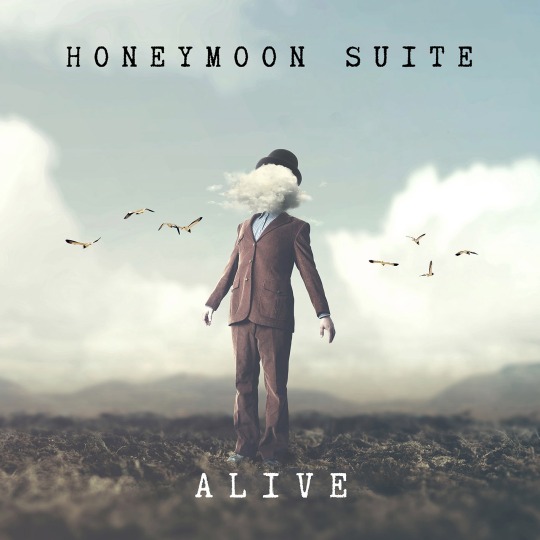
Honeymoon Suite Alive 2024 Frontiers Music ————————————————— Tracks: 01. Alive 02. Find What You’re Looking for 03. Done Doin’ Me 04. Not Afraid to Fall 05. Tell Me What You Want 06. Give It All 07. Love Comes 08. Broken 09. Livin’ out Loud 10. Doesn’t Feel That Way 11. Love Changes Everything 12. New Girl Now —————————————————
Dave Betts
John Richard DeGiul “Johnnie Dee”
Derry Grehan
Gary Lalonde
Peter Nunn
* Long Live Rock Archive
#HoneymoonSuite#Honeymoon Suite#Dave Betts#Johnnie Dee#Derry Grehan#Gary Lalonde#Peter Nunn#Alive#LP#AOR#2024
0 notes